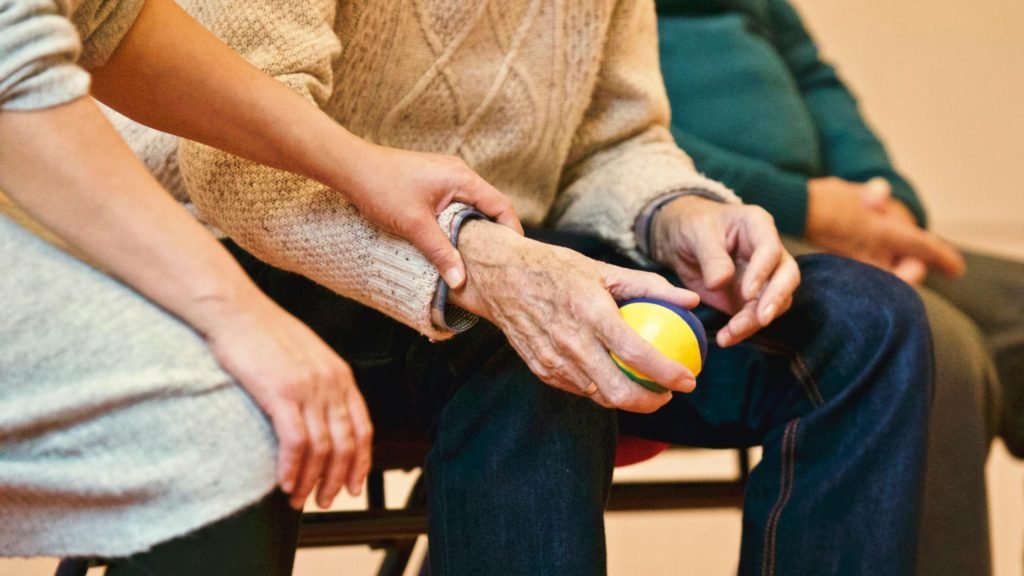In your search for affordable or even free medications, you may be wondering if there are any clinical trials or research studies that offer such opportunities. Well, good news is that there are indeed various clinical trials and research studies that provide free medications. These trials and studies are conducted by pharmaceutical companies, research institutions, and healthcare organizations with the aim of testing new drugs or therapies. By participating in these trials or studies, not only can you potentially access necessary medications without cost, but you also contribute to advancing medical knowledge and improving treatments for others in need.
Government-sponsored Clinical Trials
Understanding government-sponsored clinical trials
Government-sponsored clinical trials are research studies conducted by governmental agencies such as the National Institutes of Health (NIH) or the Centers for Disease Control and Prevention (CDC). These trials aim to investigate the safety and effectiveness of new medications, treatments, or preventive measures. These studies are crucial in advancing medical knowledge and improving patient care.
Government-sponsored clinical trials involve a structured research process, where participants are carefully selected based on specific eligibility criteria. Participants may receive free medications, as well as comprehensive medical care and monitoring throughout the duration of the trial. The aim is to ensure that the medications being tested are both safe and effective.
Benefits of participating in government-sponsored clinical trials
Participating in government-sponsored clinical trials can have numerous benefits. Firstly, by participating, you may gain access to cutting-edge treatments or medications that are not yet publicly available. This can potentially improve your health outcomes and provide treatment options that may not be available through standard care.
Additionally, government-sponsored trials often have a high level of scrutiny and oversight, ensuring that participant safety and ethical considerations are prioritized. This means that you can have confidence in the quality and integrity of the trial and the information obtained from it.
Furthermore, participating in a clinical trial can be an opportunity to contribute to the advancement of medical knowledge and the development of new treatments. By playing an active role, you can make a difference in the lives of future patients who may benefit from the outcomes of the trial.
Pharmaceutical Company-sponsored Studies
Overview of pharmaceutical company-sponsored studies
Pharmaceutical company-sponsored studies, also known as industry-sponsored studies, are clinical trials conducted by pharmaceutical companies or other private sector entities. These studies aim to assess the safety and effectiveness of new medications or treatments developed by the company.
Pharmaceutical company-sponsored studies often require participants to meet specific eligibility criteria, which may vary depending on the nature of the study. These studies are designed to rigorously evaluate the new medications or treatments under investigation, with the ultimate aim of obtaining regulatory approval for their use.
Advantages of participating in pharmaceutical company-sponsored studies
Participating in pharmaceutical company-sponsored studies can offer several advantages. Firstly, you may gain early access to innovative medications or treatments that are not yet widely available. This can be particularly beneficial for individuals with limited treatment options or for those whose current treatments are not effectively managing their condition.
Moreover, pharmaceutical company-sponsored studies often provide participants with comprehensive medical care and monitoring throughout the trial. This can ensure that you receive close attention from a team of healthcare professionals and that any potential side effects or adverse events are promptly addressed.
Lastly, by participating in these studies, you are directly contributing to the development of new medications and treatments. Your involvement may potentially benefit not only yourself but also countless others who may benefit from the improved therapies resulting from the study.

This image is property of images.pexels.com.
University Research Studies
Exploring university research studies
University research studies are conducted by academic institutions, aiming to expand scientific knowledge in various fields, including medicine. These studies may focus on a wide range of healthcare topics, such as disease prevention, treatment effectiveness, or health education initiatives.
University research studies often involve collaboration between researchers, healthcare professionals, and study participants. These studies may require participants to meet specific eligibility criteria, such as having a particular medical condition or fitting into a specific demographic group.
Benefits of participating in university research studies
Participating in university research studies can offer several advantages. Firstly, these studies often provide access to specialized medical care that may not be available through standard healthcare providers. This can be particularly valuable for individuals with rare or complex medical conditions.
Moreover, university research studies contribute to expanding scientific knowledge and improving healthcare practices. By participating, you become an active contributor to the advancement of medical knowledge, leading to better patient care in the long run.
Additionally, some university research studies may offer compensation for participation, which can help offset any associated costs or inconveniences. This compensation can vary depending on the nature of the study and can include financial compensation or free medications.
Non-profit Organizations
Introduction to non-profit organizations
Non-profit organizations are dedicated to serving the needs of the community, including providing healthcare services and access to medications. These organizations often collaborate with healthcare providers, pharmaceutical companies, and government agencies to enhance healthcare accessibility and affordability.
Non-profit organizations may focus on specific medical conditions or target underserved populations who struggle to afford necessary medications. They aim to bridge the gap between medical needs and financial constraints, providing free or low-cost medications to those in need.
The role of non-profit organizations in providing free medications
Non-profit organizations play a crucial role in providing free medications to individuals who might otherwise struggle to afford them. These organizations may establish partnerships with pharmaceutical companies, which donate medications or provide them at reduced costs.
Moreover, non-profit organizations often have dedicated patient assistance programs that help individuals navigate the complexities of accessing free medications. They offer support in the form of guidance, advocacy, and connecting patients with available resources.
Through their efforts, non-profit organizations strive to ensure that all individuals have access to the necessary medications, regardless of their socioeconomic status.

This image is property of images.pexels.com.
Patient Assistance Programs
Understanding patient assistance programs
Patient assistance programs (PAPs) are initiatives offered by pharmaceutical companies, non-profit organizations, and government agencies to help individuals access the medications they need at little or no cost. These programs primarily target individuals who are uninsured, underinsured or face financial hardships.
PAPs typically involve an application process that evaluates the individual’s financial situation and medical needs. If eligible, participants can receive their medications at reduced or no cost. These programs often require regular re-application to maintain eligibility.
How to qualify for patient assistance programs
Qualification criteria for patient assistance programs can vary depending on the program and the sponsoring organization. Generally, eligibility is determined based on factors such as income level, insurance status, and medical condition.
To apply for PAPs, individuals usually need to complete an application form, provide documentation of their financial situation, and submit any required medical information. It is important to carefully review the eligibility requirements and submit all necessary documents to increase the chances of approval.
Overall, patient assistance programs can be a valuable resource for individuals who struggle to afford their medications and provide essential support in accessing the necessary treatments.
Medical Clinics and Hospitals
Availability of free medications in medical clinics and hospitals
Medical clinics and hospitals often provide free medications to low-income, uninsured, or underinsured individuals. These facilities may have partnerships with pharmaceutical companies, non-profit organizations, or government agencies to secure a supply of free medications.
Moreover, medical clinics and hospitals may have their own medication assistance programs, offering free or discounted prescriptions to eligible patients. These programs typically assess financial need and medical necessity to determine eligibility.
Eligibility criteria for accessing free medications
The eligibility criteria for accessing free medications at medical clinics and hospitals can vary depending on the facility and the specific program in place. Generally, criteria may consider factors such as income level, insurance status, residency, and medical needs.
To determine eligibility, individuals may be required to provide documentation of their financial situation, proof of residency, and any relevant medical records. It is recommended to contact the specific facility or program to inquire about their eligibility criteria and application process.
It’s important to note that availability of free medications may vary depending on the resources and funding available to the medical clinic or hospital, so it may be worth exploring multiple options in your area.

This image is property of images.pexels.com.
Community Health Centers
Role of community health centers in providing free medications
Community health centers, also known as federally qualified health centers, are healthcare facilities that aim to provide accessible and affordable care to underserved populations. These centers often have partnerships with pharmaceutical companies, non-profit organizations, and government agencies to ensure the availability of free or low-cost medications.
Community health centers play a vital role in providing free medications to individuals who may not have access to other healthcare resources. These centers typically offer a range of medical services, including prescriptions, and aim to address the needs of the community they serve.
Locating community health centers that offer free medications
Locating community health centers that offer free medications can be done through various resources. One way is to use the Find a Health Center tool provided by the Health Resources and Services Administration (HRSA), which allows you to search for federally funded health centers in your area.
Additionally, contacting local or state healthcare agencies, non-profit organizations, or community clinics can provide information on community health centers that offer free medications. These organizations often have connections to local health resources and can direct you to the appropriate facilities.
It’s important to research the specific services and eligibility criteria of each community health center to ensure they provide the medications you need and that you meet the necessary qualifications.
Clinical Trial Databases
Exploring clinical trial databases
Clinical trial databases are online resources that provide comprehensive information about ongoing clinical trials. These databases collect information on various clinical trials, including those that offer free medications as part of the study.
Popular clinical trial databases include ClinicalTrials.gov, which is maintained by the NIH, and various databases provided by pharmaceutical companies, academic institutions, and non-profit organizations. These databases allow users to search for trials based on specific criteria such as medical condition, location, and study phase.
Finding clinical trials that provide free medications
To find clinical trials that provide free medications, one can utilize clinical trial databases and search for trials that specifically mention the provision of medications at no cost. These trials are often categorized as “treatment trials” or “investigational drug trials.”
When using a clinical trial database, it is important to carefully review the trial descriptions and eligibility criteria to ensure that you meet the necessary requirements and that the trial aligns with your medical needs. Additionally, consulting with your healthcare provider can provide valuable guidance and assistance in navigating the available options.
Participating in a clinical trial not only provides access to potentially beneficial treatments but also contributes to the advancement of medical knowledge, making it a compelling option for those seeking free medications.
Accessing Free Medications Online
Online resources for accessing free medications
Accessing free medications online has become increasingly common, with numerous resources available to help individuals in need. Various non-profit organizations provide online platforms where individuals can search for prescription assistance programs or patient assistance programs offered by pharmaceutical companies.
Additionally, some pharmaceutical companies have their own websites that provide information on patient assistance programs, detailing the eligibility criteria and application process. These websites often offer online applications for individuals to apply directly through their platform.
Moreover, online pharmacies can be another resource, particularly for generic medications. It is essential to exercise caution and only utilize reputable online pharmacies that require a valid prescription and adhere to stringent safety protocols.
Precautions to take when obtaining medications online
While online resources can be helpful in accessing free medications, it is crucial to take certain precautions to ensure your safety and the legitimacy of the medications obtained. Here are a few important considerations:
-
Verify the legitimacy of the online platform: Before utilizing any online resource, verify its credibility by checking for reviews, ensuring it has proper licensing, and confirming its association with reputable organizations.
-
Consult your healthcare provider: It is vital to consult your healthcare provider before obtaining medications online to ensure they are suitable for your condition and usage. Your healthcare provider can provide valuable guidance and suggest reliable sources.
-
Beware of counterfeit medications: Counterfeit medications can pose significant risks to your health. Only obtain medications from reputable sources that require a valid prescription and adhere to strict quality control measures.
By following these precautions, you can safely access free medications online, ensuring your health and well-being are not compromised.
Alternative Options for Free Medications
Exploring alternative options for obtaining free medications
In addition to the previously mentioned options, there are alternative pathways to obtain free medications. These options can be particularly valuable for individuals who may not meet certain eligibility criteria or who face unique circumstances. Some alternatives include:
-
Prescription assistance programs offered by pharmaceutical companies: Many pharmaceutical companies have specific programs in place to provide free or discounted medications to individuals who meet their eligibility criteria. These programs often have their own application process and support services.
-
Local charity organizations and foundations: Local charity organizations and foundations may provide financial assistance or free medications to individuals who meet their criteria. These resources often target specific medical conditions or demographics and can be found through local healthcare providers or online directories.
-
Patient advocacy groups: Patient advocacy groups, particularly those focused on specific medical conditions, can provide information, resources, and support for accessing free medications. These groups often have connections to pharmaceutical companies and non-profit organizations, facilitating access to assistance programs.
Support and resources for individuals seeking free medications
It is essential to recognize that seeking free medications can be a complex and overwhelming process. However, numerous support networks and resources exist to assist individuals in navigating this journey. By reaching out to the following entities, you can receive guidance, information, and advocacy:
-
Healthcare providers: Your healthcare provider can offer guidance on accessing free medications, connecting you with appropriate resources, and recommending alternative treatments or financial resources.
-
Pharmacists: Pharmacists are knowledgeable about various patient assistance programs and can provide guidance on accessing free medications, including exploring generic alternatives and cost-saving options.
-
Non-profit organizations: Non-profit organizations specializing in patient advocacy or specific medical conditions often have dedicated helplines, online forums, or local chapters where individuals can seek support, share experiences, and gain valuable insights.
Remember, you are not alone in this journey. Utilize the available support networks, explore alternative options, and persist in advocating for your healthcare needs. The resources and assistance you need may be closer than you think.


